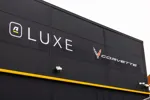The battery has been developed in a three-year research programme to find a solution to problems with batteries in hybrid cars.
The scientists say their new battery could knock around £2,000 off the price of extremely expensive nickel metal hydride units used in hybrid cars - making the dual-fuel cars much cheaper.
Hybrid cars run on a combination of battery power and small petrol engines, giving more than 70mpg - making them the most economical cars on the market.
The RHOLAB battery - a Reliable, Highly Optimised Lead-Acid Battery - is the result of a research consortium under the Foresight Vehicle initiative, a Government-funded programme aimed at keeping Britain ahead in high-technology in the automotive sector.
Although it uses acid, there is no free liquid in the RHOLAB battery. Instead the acid is absorbed within a glass fibre separator and the individual cells are round, not square, and spirally wound like a Swiss roll.
Each 2-volt cell is fully sealed and while technically each of the RHOLAB battery's four 36V modules needs only 18 cells, the scientists have built in a 19th cell which is part of the battery's secret.
The presence of this cell means that each cell in the 144-volt unit can be recharged in turn, even when the car is not being driven, without the driver even being aware it's happening.
Scientists have already put the RHOLAB battery, fitted in a Honda Insight, through gruelling tests but are now to start a full 50,000-mile trial at the Millbrook Proving Ground.
Pat Selwood, Foresight Vehicle's programme manager, said: "This could be a breakthrough for a technology that many people had written off. The RHOLAB battery could make hybrid electric cars much cheaper and they reduce CO2 emissions drastically.














Login to comment
Comments
No comments have been made yet.